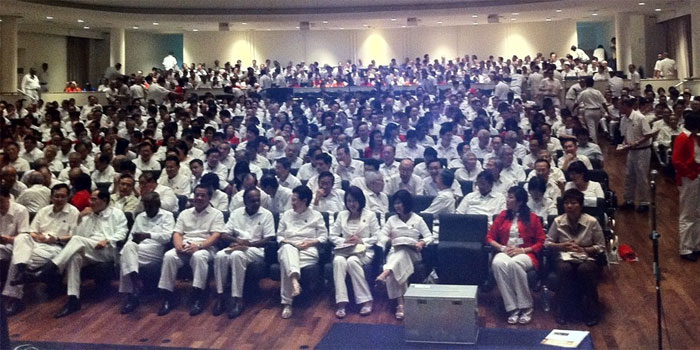By Constance Singam
The riot in Little India is a reminder that not all is well in the Republic of Singapore. The comments made at the PAP convention by Minister Chan Chun Sing about learning from the 1960s generation of PAP pioneers is not helpful and exposes a lack of vision, imagination and new ideas. I recall that in the 1980s the second generation PAP leaders tried to prove their mettle by deploying the Internal Security Act on a group of Church workers. The riot and the minister’s comments show that there is social tension on the one hand and an inflexible, unyielding government on the other. That is a real worry.
The biggest mistake the PAP has made and continues to make is its failure to respect Singaporeans as ethically-free agents.
But the PAP is sensitive to electoral losses. This is evident in their responses to losses in the percentage of popular votes since the eighties and in its consequent attempts to open up channels of communications. The Singapore Conversation, for instance is the most unprecedented degree of consultation in the process of policy-making.
The government has addressed many of the concerns of the electorate, such as the cost of HDB flats and their availability, transport and health costs, the target of 6.9 mil population, the concern about immigration and has reached out to Singaporeans in the national conversation to get feedback on public policies.
For instance the PAP response, to the election losses in 1984, the first of the so-called watershed elections, appeared in a series of significant concessions made to voter demands for wider participation in decision-making, so long as there was no overt undermining of power and control. These responses ranged from enlarging strategies and avenues for soliciting public opinion, to providing welfare handouts to the disadvantaged. The feedback network started with the Feedback Unit in 1984, the Institute of Policy Studies in 1987, the Government Parliamentary Committees, the Group Representative Constituency in 1988, the Nominated MP scheme and the setting up of Town Councils. That year we also saw discussions on the National Agenda involving citizens in large numbers.
But after that flurry of activities, the PAP message, reinforced by the 1987 use of the Internal Security Act to detain 22 young people, was that in some things it would not countenance change. For even as it promotes new outlets for political participation and dissent, as in the national conversation the PAP continues to define the limits of debate as so depressingly illustrated by the legal case being mounted against blogger Alex Au and the new rules set up to control social media.
These restrictions reflect the PAP government’s reliance on control as a means of limiting the expansion of political space and this is becoming abundantly clear from the statements coming out of the PAP convention.
A realistic view of our current political situation is that these avenues for participation, such as the national conversation are damage control strategies – strategies to contain opposition politics, manage dissent and placate the demand for liberalisation of public space, rather than genuine moves to encourage open debate on political issues.
The impulse is to manage new social forces by a government that is trapped in its own fears and old patterns of behaviour to exert power and control.
It seems to me that they are still stuck in the 1960s mode of control. This can be debilitating to the PAP. The repressive pattern of response to opposition, for example, its pursuing of an opposition candidate or a blogger through the legal system, however justified it may be by an appeal to the laws and therefore legitimacy, is nevertheless perceived by many Singaporeans as politically motivated.
The continuing application of the law to control opposition for political motives will further alienate voters and fail to achieve the PAP-desired result of trust, confidence and respect for the government and will manifest itself in uncivil acts.
Elections are one avenue, and a significant one at that, for registering protests that cannot be ignored as the 2011 GE is demonstrating. The years, before the next election, 2014 and 2015 are going to be interesting years.

